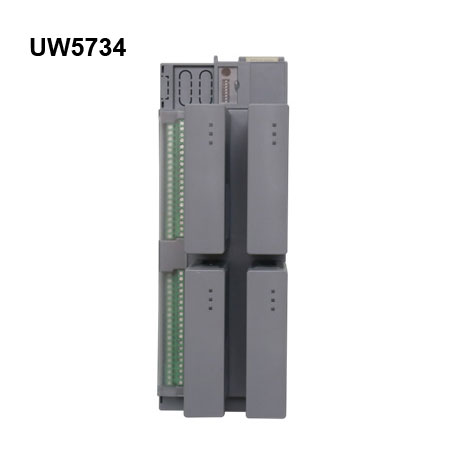A Distributed Control System (DCS) is widely used in various industries for its reliability, scalability, and flexibility. It provides centralized monitoring and control over complex systems while distributing control functions to local controllers. But how exactly is DCS applied in different sectors? Let’s explore its key applications across diverse industries.

In power generation, maintaining efficiency and safety is crucial. A DCS helps monitor and control multiple processes such as turbine operations, boiler pressure, and power distribution. By automating these tasks and ensuring real-time data collection, the DCS allows operators to detect issues before they escalate. In power plants, DCS systems are used to control everything from coal handling to steam turbine control, contributing to better fuel efficiency and reduced downtime.
The oil and gas industry relies heavily on the ability to monitor complex and potentially hazardous processes. A DCS in this sector is used to control drilling operations, offshore platforms, refineries, and pipeline systems. The DCS helps regulate temperatures, pressures, and flow rates in real time, ensuring smooth operations. By offering redundancy and fault tolerance, the system enhances safety and minimizes the risk of accidents in these high-risk environments.
In the chemical and pharmaceutical industries, precision and consistency are key to product quality. A DCS is used to control the chemical reactions, mixing, and temperature regulation required in production. It ensures accurate measurements, reduces human error, and improves batch consistency. For pharmaceuticals, compliance with stringent regulatory standards is essential, and DCS can help ensure that every aspect of the manufacturing process meets the required specifications.
Water treatment plants require careful monitoring of processes such as filtration, chemical dosing, and pH levels. A DCS in water treatment plants helps optimize the process by continuously monitoring the quality of water and controlling the flow of chemicals. The DCS ensures consistent water quality while improving operational efficiency. Additionally, it enables remote monitoring, so operators can address issues promptly without being on-site, leading to enhanced safety and reliability.
In manufacturing, especially in industries such as automotive, food processing, and electronics, DCS ensures that production lines run smoothly. The system can be used to control various production processes, including assembly lines, packaging, and quality testing. By automating tasks and integrating sensors and actuators, a DCS helps reduce manual labor, enhance precision, and improve throughput. The ability to monitor and control equipment remotely further improves efficiency and reduces operational costs.
Building management systems (BMS) are essential for controlling HVAC, lighting, fire alarms, and security systems in large buildings or complexes. A DCS can integrate these various systems into a unified control platform, allowing building operators to monitor and manage all systems from a centralized location. With the automation provided by DCS, energy usage can be optimized, and system performance can be monitored in real time, contributing to cost savings and improved comfort for building occupants.
In the food and beverage industry, maintaining consistency, quality, and safety are critical. DCS is used to control production processes, from mixing and blending ingredients to controlling temperatures during cooking or fermentation. It ensures that each product batch meets quality standards and complies with health regulations. Additionally, DCS helps optimize energy consumption and reduce waste during production, making it a valuable tool in food processing operations.
In mining and metal processing, DCS is used to control operations like extraction, crushing, smelting, and refining. The system continuously monitors parameters such as temperature, pressure, and chemical composition to ensure that the process is operating efficiently and safely. By automating these processes and providing real-time data, DCS helps improve production rates, reduce energy consumption, and lower the risk of accidents.
If you're looking for a Distributed Control System to optimize your processes, visit us at http://www.chuwntek.com. We provide advanced, reliable DCS solutions tailored to meet the specific needs of various industries.
